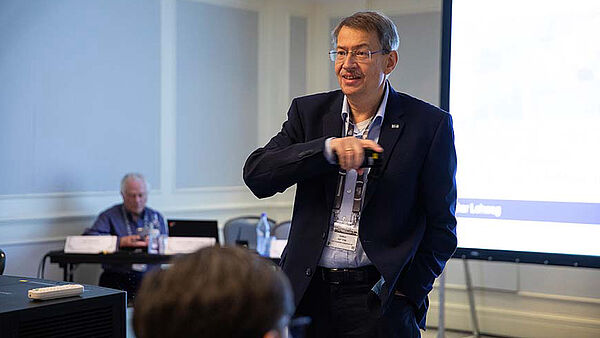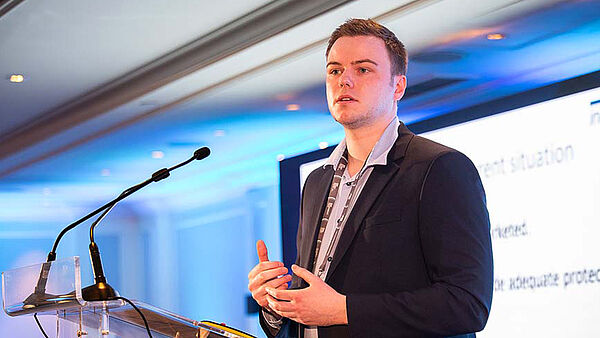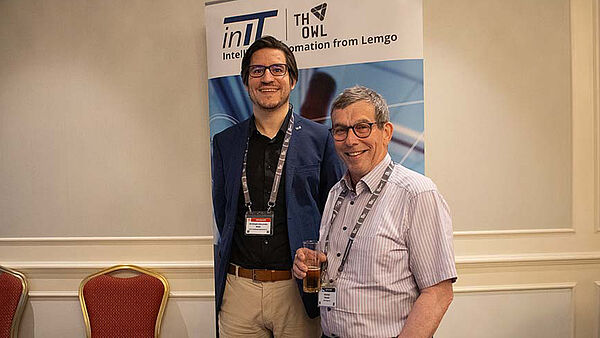Introduction to artificial intelligence and its impact on the security of optical and digital documents
The discussion about artificial intelligence (AI) is not only about the potential, but also about the associated risks, particularly in the area of forgery. In addition to ethical and technical challenges, the risks of deep fakes take centre stage. A highlight of the conference was therefore the seminar "AI and Quantum: Where Now for Document Security? - An Introduction to Artificial Intelligence" by inIT Director Prof Volker Lohweg, who took a look behind the scenes of these possibilities. In a brief overview, the difference between human and artificial intelligence was explained and the diversity of AI and its possible applications highlighted. However, the dangers of AI approaches were also highlighted. These include the creation of certificates and banknotes with the help of image-generating AI approaches.
Strategy for closing the security gap in certificates and products for medical personal protective equipment
This year, inIT was also represented with the paper "Shaping the Future of Medical Personal Protective Equipment (PPE) Certificate Authentication: Strategies for a Standardisation of PPE Certificates" by Julian Bültemeier, Prof. Volker Lohweg and Christoph-Alexander Holst. Julian Bültemeier pointed out the current imbalance in certification: "There are regulations for personal protective equipment that document exactly which tests and limit values the products must fulfil. However, this is ultimately communicated to the consumer via a simple certificate without safety features. During the Covid pandemic in particular, this has led to counterfeit products being placed on the market with fake certification. At best, the products simply do not protect. In the worst case, the masks are contaminated with dangerous substances or fungi and therefore pose a health risk themselves."
This topic was already discussed with the community at last year's ODDS in Prague, where a verification tool for simplified verification was presented, which, however, does not help to close this security gap. This year, inIT researchers therefore presented a strategy for closing this security gap to the community and discussed it in detail. This is based on an online database in combination with a copy-protected QR code that can be used to verify both products and certificates. As part of the table-top exhibition, this strategy was also presented with the help of a smartphone app. This solution met with a positive response from the community and shows that it is already possible to close the existing security gap with simple and established approaches. However, this requires greater commitment from the certification bodies involved and stronger political support in order to establish the strategy and improve the certification of medical personal protective equipment in the future.
Links:
Click here to go to the ODDS 2024 conference page: https://opticaldigitalsecurity.com/
If you would like to follow the further development regarding the certification of personal protective equipment, you can read more here: https://www.init-owl.de/aktuelles/news/detail/die-sicherheitsluecke-bei-der-ueberpruefung-von-zertifikaten-medizinischer-persoenlicher-schutzausruestung/
Please note:
The photos were taken by the organiser Reconnaissance International and made available to us.




